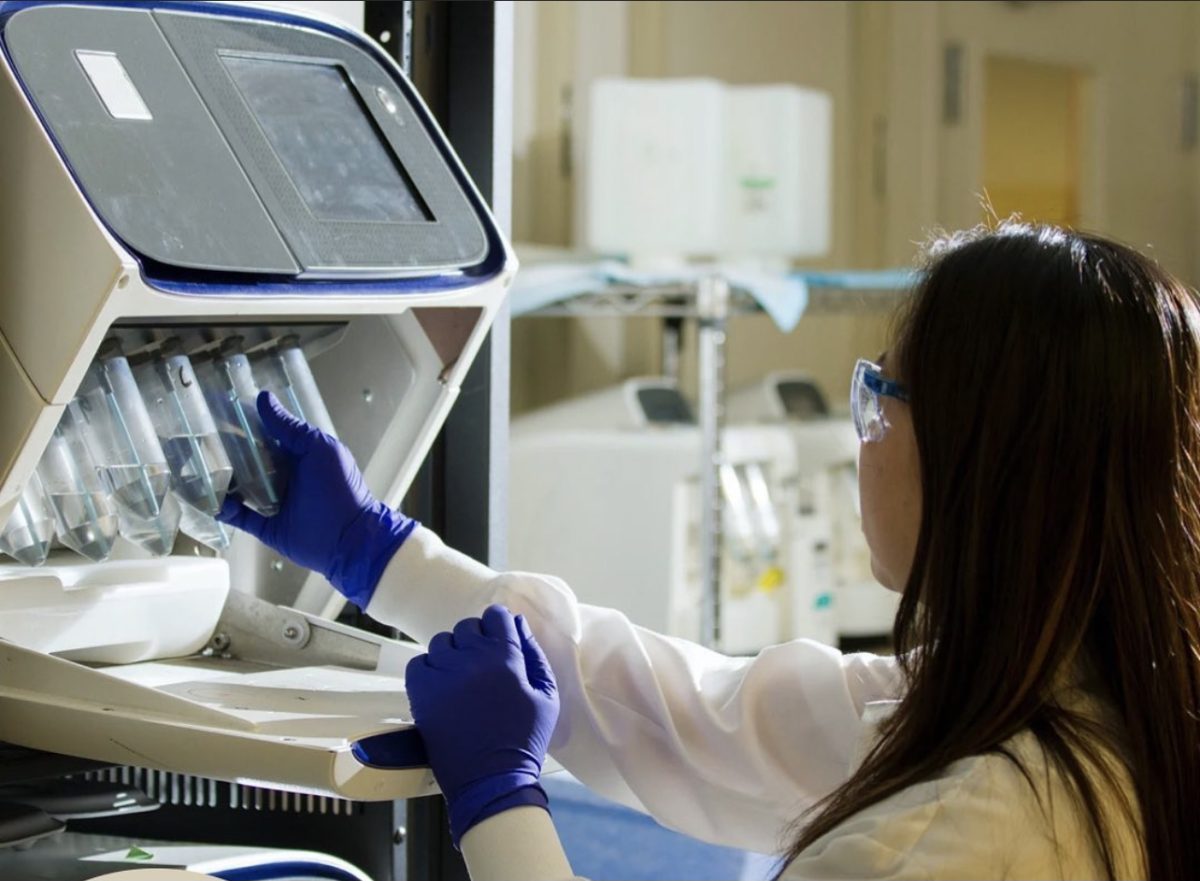Fordham University has established itself as a liberal arts school, working a variety of areas of study into its core curriculum with required courses in humanities such as English and philosophy throughout the students’ years at the university.
Susan Mun, senior research analyst at Fordham’s Office of Institutional Research, reports that around an average of 18% entered Fordham with the intention of declaring a major in STEM throughout the past five years. With numbers like these at a liberal arts school, it is important that the university attempts to ensure their STEM students are not overlooked and are able to get a quality education for their desired field of study.
One of those STEM students is Ziyu Tian, FCRH ’27, who intends to be a math major and reports that during her time at Fordham, she has found the Fordham Math Help Room to be a great resource for her: “I really love the energy of the Math Help Room… You can just pop in and ask any professor who’s not busy for homework help,” Tian said.
“The best resource offered to me was literally the Math Help Room because there’s almost always a professor in there to help me so I’m not stuck on a problem for days on end,” said Rocio Diaz, FCRH ’27, an intended math and economics major with a concentration in math. “I also had the SILC [Science Integrated Learning Community] tutors offered to me, but I could barely make it to the available times because of my schedule.”
“I have been deeply impressed with the commitment of [the] STEM faculty to students, teaching and research at Fordham, especially in the chemistry and biochemistry department,” said Mary Biggs, FCRH ’25. “Unfortunately, I have found myself somewhat disappointed by the university’s STEM infrastructure. For example, STEM students competing for undergraduate research grants are evaluated by humanities professors who are not able to fully contextualize their work, making it difficult to acknowledge the technicality required of STEM research. The inverse is also true in that STEM professors often end up reviewing humanities proposals that they lack the expertise to evaluate fairly. STEM departments are also understaffed, with one lab technician running four-plus labs a semester without help.”
Integrative neuroscience major Sophia Frantzeskos, FCRH ’25, expressed similar frustrations with the allocation of focus given to STEM needs by the university. “The university clearly does not prioritize it [STEM needs]. Our labs are lacking basic necessities like working microscopes and grants for STEM research, which oftentimes need to have funding to be completed, and have to compete with non-STEM fields that do not need the same level of funding,” Frantzeskos said. “It is frustrating when there are students conducting important research like cancer research, but the university does not seem to reward that work. I think that science at Fordham is really special, but as of right now, I have not felt much support from the university for students.”
Frantzeskos clarifies in her statement that this lack of support does not come from the faculty within her field of study. “I teach first-year students, and possibly having a component in their orientation on the academic transition to college might be helpful on what it means to study in college versus high school. Understanding versus memorizing… The challenge can be having the students spend the time reviewing the information on the study strategies,” said Fordham biology lecturer William Gault, Ph.D. “I would also add that awareness of careers outside of being a medical doctor is not always obvious in our bio students. I try to mention additional careers from my own professional and personal experiences. I think more diverse career options might stimulate more of our students to find their specific passions and a more goal-directed approach to their studying.”
The university has plans to build a new STEM lab in order to improve undergraduate students’ access to research, and with the addition of a biochemistry major this semester, the department seems likely to expand in the future.
“Fordham is an outstanding university, but it has room to grow in STEM to compete with its peers, and I hope to see some of that growth while I’m a student here,” said Biggs.







































































































































































































